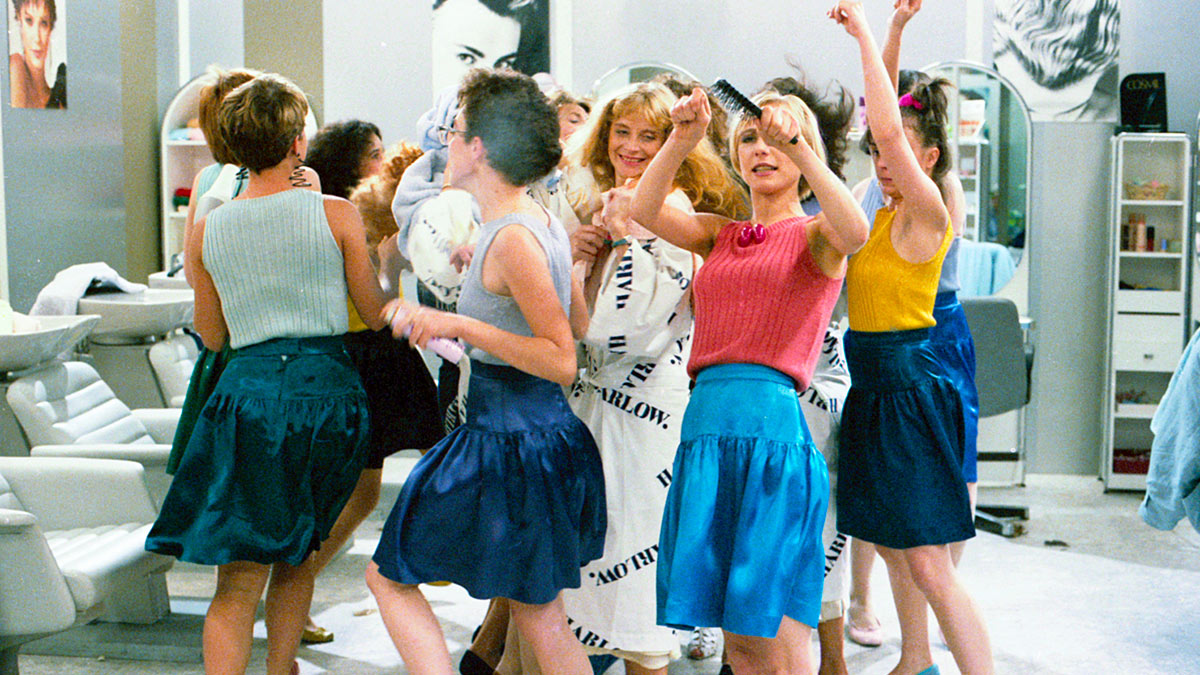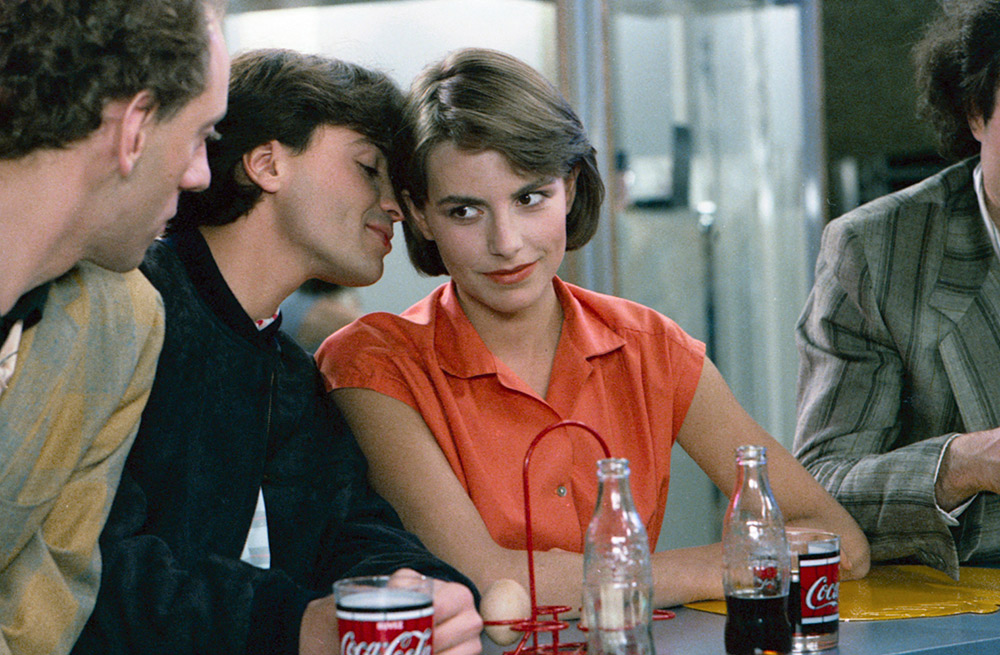
© Jean Ber - Fonda&on Chantal Akerman
"Golden Eighties" A song born from the collapse, a present for another Jeanne
2023.04.13
chamber music musical
``Golden Eighties,'' set in an underground shopping mall, is essentially a chamber musical. There is no dance in this work that shows a high level of physical ability. There is no passionate dance with a partner. In that sense, this work can be said to be an unusual musical in the lineage of Godard's `` A Woman Is a Woman '' (61), which turned a room in a Parisian apartment into a rich musical space. Chantal Akerman's filmography, which began with her self-written and self-performed subversive short story ``Blow Up the Streets'' (1968), has been based on observing interiors, and above all, the living spaces known as ``rooms''.
The film begins with an elegant shot of the feet of multiple women walking, including one in high heels. The sound of shoes hitting the floor sounded like a celebration of the upcoming musical movie. Creation that starts from the periphery rather than the center of the story. Chantal Akerman once said that in a typical movie, washing dishes is at the "bottom of the hierarchy." `` Jeanne Dielman '' accumulates the ordinary gestures of housework, and the repetitive dance quality eventually creates suspense.

"Golden Eighties" © Jean Ber - Fonda&on Chantal Akerman
In contrast, ``All Night'' (1982) explores the presence/absence of the energy of love by accumulating the dramatic and climactic gesture of ``embrace.'' (described with the word "shards"). Chantal Akerman's films are shaped by fragments of gesture. A song made of fragments.
``The 1980s'' (1983), which can be considered a draft version of the main story filmed to raise funds for production, is truly an accumulation of fragments. This work, which includes rehearsal scenes and fragments, can be said to be the most Godardian film in Chantal Akerman's filmography. The material is there, just as it is. The exploration of gesture is recorded in its exposed form. In this work, you can see Chantal Akerman conducting the song in front of the recording microphone. Joy resides in the dynamic gestures.

